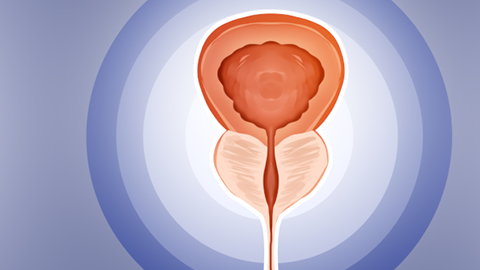What is the best treatment for benign prostatic hyperplasia (BPH)?
Generally speaking, there is no definitive "best treatment for prostate hyperplasia," as prostate enlargement may be caused by factors such as aging, unhealthy lifestyle habits, chronic prostatitis, bladder neck obstruction, urethral stricture, and others. It is recommended to seek timely medical consultation, identify the underlying cause, and then improve the condition under a doctor's guidance through general treatments, medication, surgery, or other methods. A detailed explanation is as follows:

1. Aging: As men age, hormonal changes occur in the body, leading to gradual prostate tissue growth, which compresses the urethra and causes symptoms such as frequent urination and difficulty urinating. It is advisable to avoid holding urine, maintain regular urination, and drink 1500–2000 ml of water daily.
2. Unhealthy lifestyle habits: Long-term smoking, excessive alcohol consumption, prolonged sitting, or a high-fat diet may stimulate prostate tissue growth, accompanied by a feeling of heaviness in the lower abdomen. Quit smoking, limit alcohol consumption, reduce intake of high-fat and spicy foods, get up and move for 5–10 minutes every hour of sitting, and engage in moderate exercise such as brisk walking or jogging to promote pelvic blood circulation.
3. Chronic prostatitis: Long-term inflammation can cause persistent irritation of the prostate, leading to tissue congestion and swelling, which in turn causes hyperplasia, accompanied by urgency and pain during urination. Patients should follow medical advice to use medications such as Levofloxacin Hydrochloride Capsules, Azithromycin Dispersible Tablets, and Qianlieshutong Capsules to control inflammation.
4. Bladder neck obstruction: Thickening of the bladder neck muscles increases resistance during urination, which over time causes compensatory prostate hyperplasia, manifesting as a thinner urine stream and incomplete bladder emptying. Patients should follow medical instructions to use medications such as Tamsulosin Hydrochloride Sustained-Release Capsules, Finasteride Tablets, and Terazosin Tablets to relax smooth muscle.
5. Urethral stricture: Scarring from urethral injury or inflammation can narrow the urethra, causing difficult urination and resulting in prostate hyperplasia, accompanied by straining during urination and urinary retention. Mild strictures can be managed with medications such as Cefixime Dispersible Tablets, Ciprofloxacin Hydrochloride Tablets, and Sanjin Tablets as directed by a physician to prevent infection, along with urethral dilation procedures.
Daily care should include maintaining perineal hygiene, avoiding staying up late, and reducing mental stress. Diet-wise, consume more fiber-rich foods to ensure regular bowel movements and avoid constipation that may put pressure on the prostate. Comprehensive care can help reduce the burden on the prostate and support urinary system health.





